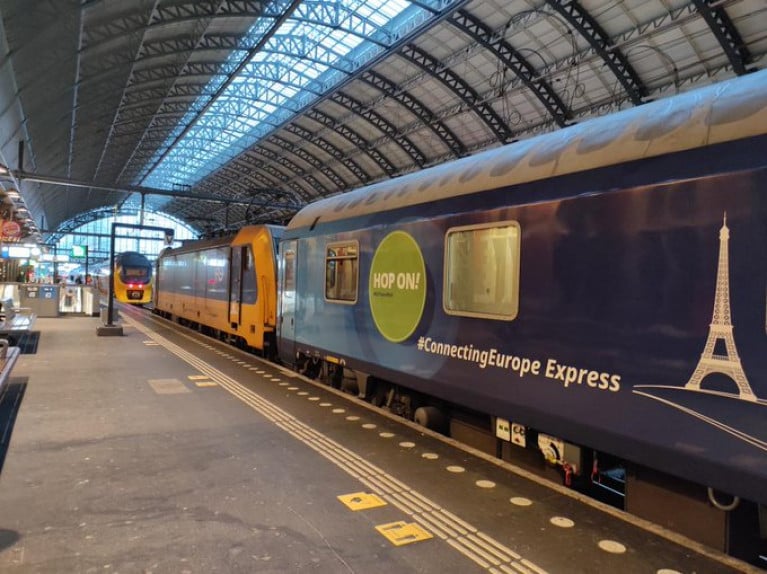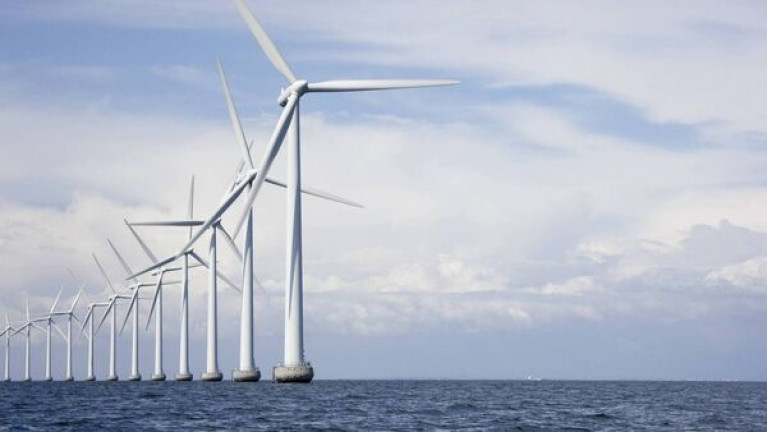Displaying items by tag: EU Green Deal
Irish Maritime Development Office (IMDO) at 'Connecting Europe Days' Brussels (2nd-5th April)
The Irish Maritime Development Office (IMDO) will be at the Connecting Europe Days 2024, Europe’s mobility flagship event, held at the Square in Brussels, Belgium.
Representatives from the IMDO will be at stand 49 during the two days of the event between 2-5 April.
This event will be the place to discuss concrete measures and exchange good practices on creating a sustainable, smart and resilient, transport and mobility network in Europe. It will take stock of the ambitious goals set out in the EU Green Deal and the Sustainable and Smart Mobility Strategy.
It will focus on four main topics:
• the launch of the nine new ‘European Transport Corridors’ of the trans-European transport network (TEN-T), which also extend to neighbouring third countries, notably Ukraine and the Republic of Moldova as well as the Western Balkan partners.
• the resilience of the European transport network to the changing climate, by highlighting the devastating impacts of climate change on infrastructure and presenting possible adaptation measures.
• connectivity of our transport network with neighbouring third countries and its preparedness for external threats, by showcasing key initiatives for seamless trade flows such as the “Solidarity Lanes”. We will also exchange on measures to improve infrastructure capacity for military mobility.
• the future of funding and financing opportunities for transport infrastructure projects.
Participants will see state-of-the art innovations first-hand at an exhibition of EU-funded projects. The event is being organised together with the Belgian Presidency of the Council of the EU.
One of the European Year of Rail’s most prominent initiatives, the Connecting Europe Express has passed through the Dutch port-city of Rotterdam yesterday and arrives today in another port, Antwerp in Belgium.
Arriving in major European port-cities, the interdependencies and mutual reinforcement of European ports and rail freight connections come to the forefront. Increasing the share of rail freight will be an important building block of reaching the EU’s Green Deal objectives and therefore should be a central focus of the European Year of Rail.
Most European ports are located close to urban nodes with high pressure on the road network, which makes the increased use of rail freight a necessary choice for many ports. And vice versa, for rail freight operations, a significant share of the cargo transported on the tracks, particularly in high growth markets such as intermodal traffic, passes through the port.
On the occasion of the Express’ arrival in Rotterdam and Antwerp this week, the European Sea Ports Organisation (ESPO), the European Rail Infrastructure Manager (EIM), the European Rail Freight Association (ERFA) as well as the Community of European Railway and Infrastructure (CER) have jointly called for more attention to rail-port connectivity.
Modal shift is one of the main pillars of the Commission’s Sustainable and Smart Mobility Strategy, necessary to achieve a 90% reduction in greenhouse gas emissions from transport to meet the EU’s climate targets. In Europe, a large share of rail freight passes through its seaports, yet the modal split of rail hinterland connections varies greatly. Some seaports experience close to 50% modal split towards rail. Improving the port-rail connections on a wider scale, both in terms of infrastructure and operations, is therefore crucial to increase the share of cargo transported by rail.
The Connecting Europe Facility II should particularly promote rail projects, which improve the connectivity to and from Europe’s seaports, as improved linkage will bring direct efficiency gains for a large share of rail freight.
Isabelle Ryckbost, Secretary General of ESPO: “Improving the last-mile should be a first priority for getting more goods on rail, in terms of interoperability, data exchange, operations and infrastructure. In Europe we see a wide diversity of rail management systems in European ports. We need a level-playing-field and equal access to public funding for the necessary infrastructure investments, regardless of whether the port managing body or the national rail infrastructure manager is responsible for the rail infrastructure inside the port.”
Monika Heiming, Executive Director of EIM: “Infrastructure managers consider rail-port connectivity as an essential tool to create the much-needed modal shift for freight, in order to reply to the ambitious environmental policies of the European Commission. The funding opportunities for strategic investments in rail-port connections under the new Connecting Europe Facility II are therefore much welcomed. Infrastructure managers will continue to improve the coordination between rail and ports with all stakeholders involved.”
Conor Feighan, Secretary General of ERFA: “In order for rail freight to become more attractive to end users, rail freight undertakings must have access to a good quantity and quality of capacity. As key gateways for freight, it is therefore essential that ports have infrastructure in place which facilitates the development of a competitive rail freight market.”
Dr. Alberto Mazzola, Executive Director of CER: “Integrated and efficient connections between ports and rail infrastructure, both in Europe and in third countries are crucial to achieve the modal shift targets necessary for decarbonising transport. Improvement of last-mile connections must be accompanied by interoperable freight standards on the network and the revision of the TEN-T Regulation is an opportunity to close the gaps and bring ports and rail corridors closer together.”
The European Commission has unveiled the world's most ambitious climate change plan which will heap pressure on Ireland to meet its plan to generate a huge part of electricity from offshore wind by 2030, while at the same time meeting the demand from data centres, Irish experts have said.
According to the Irish Examiner, the EU wants member states to focus on buildings and road transport, which have barely contributed to reducing carbon emissions, and proposes bans on the sale of all new petrol and diesel cars by 2035 while establishing rules for countries to provide electric and hydrogen fuel recharging points on their road networks.
The package of proposals, known as Fit for 55 or the European Green Deal, sets the bar higher for many member states, including Ireland.
Adding pressure on Ireland as an island is the proposal that shipping would be included in Europe's carbon trading system for the first time, while jet fuel emissions by aviation comes under increased scrutiny.
The European Commission, at the same time, plans to erect the world's first carbon border tariff, which would impose emission costs on imports of goods including steel, cement, and aluminium.
Under the Green Deal, the EU has raised its renewable targets to 40% by 2030, and sets aim at legally binding targets to reduce net EU emissions by 55% by 2030, from 1990 levels, and eliminate them by 2050.
More here on Ireland's 2030 target.

























































